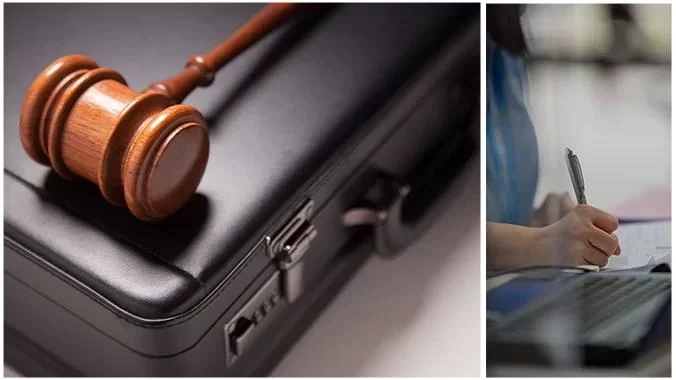
- Challenges in Collecting Debts from Bankrupt Trusts
- Understanding Bankrupt Trusts and Their Implications
- Strategies for Effective Debt Collection from Bankrupt Trusts
- Real-Life Example of Debt Collection in Bankrupt Trust Scenario
- Securing Professional Support for Bankrupt Trust Debt Recovery
1. Challenges in Collecting Debts from Bankrupt Trusts
Collecting debts from bankrupt trusts presents unique legal and financial obstacles. Unlike typical debtors, bankrupt trusts operate under complex legal frameworks that can complicate recovery efforts. The trustee managing the bankrupt trust must navigate bankruptcy laws, creditor hierarchies, and asset liquidation procedures, which often restrict direct debt collection.
One significant challenge lies in understanding the priority of creditors. In bankruptcy, not all debts are treated equally, and unsecured creditors may receive only a fraction of what they are owed, or sometimes nothing at all. Additionally, the trust’s assets might be tied up in lengthy court processes, delaying or limiting the amount recoverable.
1.1 Legal Complexities
Bankrupt trusts are subject to bankruptcy court jurisdiction, which imposes strict rules on how and when debts can be collected. This legal environment demands careful navigation to avoid missteps that could invalidate collection efforts or lead to costly litigation.
1.2 Financial Constraints
The depletion of trust assets due to bankruptcy often means limited funds are available for creditors. Debtors may lack sufficient liquid assets, resulting in creditors competing for limited resources during asset distribution.
2. Understanding Bankrupt Trusts and Their Implications
A bankrupt trust occurs when the trust’s liabilities exceed its assets, or the trust is unable to meet its financial obligations. This situation triggers bankruptcy proceedings to protect the interests of creditors while providing a structured approach to asset management and debt resolution.
2.1 Role of the Trustee
The trustee plays a crucial role by managing the trust’s assets, filing necessary legal documents, and representing the trust in court. Creditors must often work through the trustee to assert claims and participate in the bankruptcy process.
2.2 Impact on Creditors
Creditors face significant uncertainty during these proceedings. Their ability to collect debts depends on the trust’s asset pool and bankruptcy court decisions. Patience and strategic action become essential during this period.
3. Strategies for Effective Debt Collection from Bankrupt Trusts
Successfully collecting debts from bankrupt trusts requires a combination of legal insight, strategic planning, and proactive communication.
3.1 Early Claim Filing
Creditors should promptly file claims once bankruptcy is declared. Early filing ensures their debts are officially recognized and positioned appropriately within creditor priority structures.
3.2 Engaging in Bankruptcy Proceedings
Active participation in hearings and negotiations allows creditors to protect their interests, object to improper claims, and seek asset recovery options.
3.3 Negotiation and Settlement
Negotiating with trustees or debtor representatives can sometimes yield better recovery outcomes than prolonged litigation. Settlements may include partial payments or structured repayment plans.
3.4 Legal Action Outside Bankruptcy
In certain cases, pursuing separate legal remedies outside of bankruptcy courts may be viable, especially if fraud or mismanagement is suspected within the trust.
4. Real-Life Example of Debt Collection in Bankrupt Trust Scenario
A notable case involved a creditor owed a substantial sum by a family trust that declared bankruptcy after several failed business ventures. The creditor initially struggled to reclaim funds due to the trust’s limited assets and complex legal standing.
By engaging ESPLawyers, the creditor gained expert guidance through the bankruptcy process, helping to file timely claims and negotiate a favorable settlement with the trustee. The legal team uncovered mismanagement issues that influenced court decisions, improving the creditor’s position significantly.
This case underscores how professional expertise and persistence can turn challenging debt collection from bankrupt trusts into a successful recovery.
5. Securing Professional Support for Bankrupt Trust Debt Recovery
Given the complexity of collecting debts from bankrupt trusts, securing professional legal advice is essential. Specialists familiar with bankruptcy and trust law provide critical assistance in navigating court procedures, filing claims correctly, and developing effective strategies tailored to individual cases.
At ESPLawyers, our experienced team helps clients understand their rights and options in bankrupt trust scenarios. We guide you through every stage, from initial claim filing to negotiation and litigation if necessary, maximizing your chances of debt recovery.
Handling debt collection in bankrupt trusts requires more than just legal knowledge—it demands strategic thinking and personalized support. By leveraging expert advice, creditors can better protect their interests and enhance financial outcomes.








